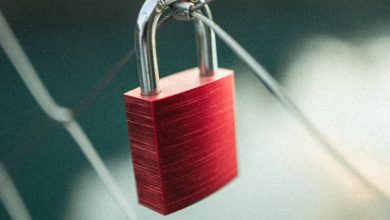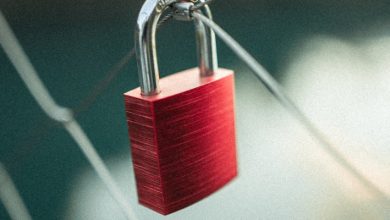How to Safeguard Your Cryptocurrency with Blockchain Security

- Understanding the Importance of Blockchain Security in the World of Cryptocurrency
- Exploring Common Threats to Cryptocurrency and How Blockchain Can Help
- Best Practices for Securing Your Digital Assets Using Blockchain Technology
- How Decentralized Ledger Technology Can Enhance Security for Cryptocurrency
- Implementing Multi-Signature Wallets: A Step Towards Better Security in Cryptocurrency
- Protecting Your Investments: Tips for Safeguarding Cryptocurrency with Blockchain Security
Understanding the Importance of Blockchain Security in the World of Cryptocurrency
Cryptocurrency transactions rely on blockchain technology for security and transparency. It is crucial to understand the importance of blockchain security in the world of cryptocurrency to safeguard your digital assets effectively.
Blockchain security is essential in preventing unauthorized access and fraudulent activities. By utilizing cryptographic techniques, blockchain ensures that transactions are secure and immutable. This decentralized system makes it nearly impossible for hackers to manipulate the data stored on the blockchain.
One of the key features of blockchain security is its transparency. Every transaction is recorded on a public ledger that is accessible to all network participants. This transparency helps to build trust among users and prevents malicious actors from altering transaction records.
Another important aspect of blockchain security is its resistance to tampering. Once a transaction is confirmed and added to the blockchain, it cannot be altered or deleted. This feature ensures the integrity of the data and prevents double-spending, which is a common issue in digital transactions.
In conclusion, understanding the importance of blockchain security is crucial for protecting your cryptocurrency investments. By leveraging the security features of blockchain technology, you can ensure that your digital assets are safe from cyber threats and fraudulent activities. Stay informed and take proactive measures to enhance the security of your cryptocurrency holdings.
Exploring Common Threats to Cryptocurrency and How Blockchain Can Help
Cryptocurrency has become increasingly popular in recent years, but with its rise in popularity comes a rise in security threats. Hackers and scammers are constantly looking for ways to exploit vulnerabilities in the system and steal people’s digital assets. Some common threats to cryptocurrency include phishing attacks, malware, and exchange hacks.
Phishing attacks involve tricking individuals into revealing their private keys or passwords through fake websites or emails. Malware can infect a user’s computer or smartphone and steal their cryptocurrency wallet information. Exchange hacks occur when a cryptocurrency exchange platform is breached, resulting in the loss of users’ funds.
Fortunately, blockchain technology offers a solution to these security threats. Blockchain is a decentralized and secure ledger that records transactions across a network of computers. Each transaction is verified by multiple participants in the network, making it nearly impossible for hackers to manipulate the system.
By using blockchain technology to safeguard your cryptocurrency, you can ensure that your digital assets are protected from fraud and theft. Blockchain’s transparency and immutability make it an ideal solution for securing transactions and preventing unauthorized access to your funds. With the right security measures in place, you can enjoy the benefits of cryptocurrency without worrying about potential threats to your assets.
Best Practices for Securing Your Digital Assets Using Blockchain Technology
When it comes to safeguarding your digital assets using blockchain technology, there are several best practices that you can implement to enhance security and protect your cryptocurrency investments. By following these guidelines, you can reduce the risk of cyber attacks and ensure that your funds remain safe and secure.
One of the most important best practices for securing your digital assets is to use a hardware wallet. Hardware wallets are physical devices that store your cryptocurrency offline, making them less vulnerable to hacking and unauthorized access. By keeping your private keys offline, you can significantly reduce the risk of theft and fraud.
Another key best practice is to use multi-factor authentication (MFA) to add an extra layer of security to your accounts. MFA requires users to provide two or more forms of identification before accessing their accounts, making it much harder for hackers to gain unauthorized access. By enabling MFA on your accounts, you can protect your digital assets from unauthorized access.
It is also important to keep your software up to date to protect against potential security vulnerabilities. By regularly updating your software and applications, you can ensure that you have the latest security patches and protections in place. This can help prevent hackers from exploiting known vulnerabilities to gain access to your digital assets.
Additionally, it is recommended to use strong, unique passwords for each of your accounts to minimize the risk of unauthorized access. Avoid using easily guessable passwords and consider using a password manager to generate and store complex passwords securely. By using strong passwords, you can make it much harder for hackers to compromise your accounts.
How Decentralized Ledger Technology Can Enhance Security for Cryptocurrency
Decentralized ledger technology, also known as blockchain, plays a crucial role in enhancing security for cryptocurrency transactions. By utilizing a distributed network of nodes to verify and record transactions, blockchain technology ensures that all transactions are secure and tamper-proof.
One of the key features of blockchain technology is its transparency. Every transaction is recorded on a public ledger, which can be viewed by anyone. This transparency helps to prevent fraud and ensures that all transactions are legitimate.
Additionally, blockchain technology uses advanced cryptographic techniques to secure transactions. Each transaction is encrypted and linked to the previous transaction, creating a chain of blocks that are virtually impossible to alter. This makes it extremely difficult for hackers to manipulate transactions or steal funds.
Furthermore, the decentralized nature of blockchain technology means that there is no central point of failure. Unlike traditional banking systems, which are vulnerable to cyber attacks and hacking, blockchain networks are distributed across a vast number of nodes. This makes it incredibly challenging for hackers to compromise the network.
In conclusion, decentralized ledger technology provides a high level of security for cryptocurrency transactions. By leveraging transparency, encryption, and decentralization, blockchain technology offers a robust solution for safeguarding your digital assets.
Implementing Multi-Signature Wallets: A Step Towards Better Security in Cryptocurrency
Implementing multi-signature wallets is a crucial step towards enhancing security in the world of cryptocurrency. By requiring multiple signatures to authorize a transaction, multi-signature wallets provide an extra layer of protection against unauthorized access and fraudulent activities. This feature significantly reduces the risk of theft and hacking, making it an essential tool for safeguarding your digital assets.
Multi-signature wallets work by distributing control over the funds among several parties, typically requiring two or more private keys to approve a transaction. This means that even if one key is compromised, the attacker would still need access to the other key(s) to complete the transaction. This added security measure makes it much more challenging for cybercriminals to steal your cryptocurrency, giving you peace of mind knowing that your funds are better protected.
One of the significant advantages of using multi-signature wallets is the ability to set up different signing configurations based on your specific security needs. For instance, you can require all parties to sign off on every transaction, or you can implement a threshold scheme where only a certain number of signatures are needed. This flexibility allows you to customize the security level of your wallet according to your preferences and risk tolerance.
In addition to enhancing security, multi-signature wallets can also help prevent human error or insider threats. By requiring multiple parties to authorize a transaction, the likelihood of a single individual making a mistake or acting maliciously is greatly reduced. This added layer of oversight can help protect your funds from internal threats within your organization or from external attacks targeting individual users.
Overall, implementing multi-signature wallets is a crucial step towards better security in the world of cryptocurrency. By leveraging the power of blockchain technology to require multiple signatures for transactions, you can significantly reduce the risk of theft, hacking, and fraud. With the ability to customize signing configurations and mitigate human error, multi-signature wallets offer a robust solution for safeguarding your digital assets in an increasingly complex and evolving threat landscape.
Protecting Your Investments: Tips for Safeguarding Cryptocurrency with Blockchain Security
When it comes to safeguarding your cryptocurrency investments, blockchain security is crucial. Here are some tips to help protect your assets:
- Use a secure wallet: Choose a reputable cryptocurrency wallet that offers robust security features such as encryption and multi-factor authentication.
- Keep your private keys safe: Your private keys are essentially the keys to your cryptocurrency kingdom. Store them offline in a secure location to prevent unauthorized access.
- Be cautious with public Wi-Fi: Avoid accessing your cryptocurrency accounts or making transactions on public Wi-Fi networks, as they can be vulnerable to hackers.
- Enable two-factor authentication: Adding an extra layer of security to your accounts with two-factor authentication can help prevent unauthorized access.
- Regularly update your software: Keep your wallet and any other cryptocurrency-related software up to date to patch any security vulnerabilities.
- Use a hardware wallet: Consider using a hardware wallet for an extra level of security, as they are not connected to the internet and are therefore less susceptible to hacking.
By following these tips and staying vigilant about your cryptocurrency security, you can help safeguard your investments and protect your assets from potential threats.



